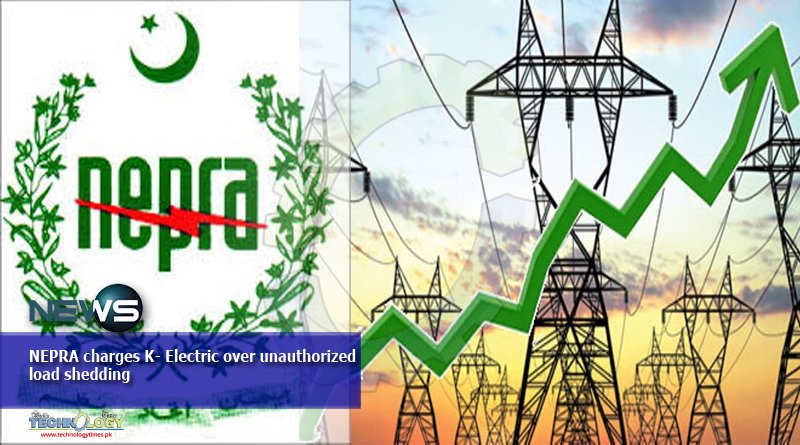National Electric Power Regulatory Authority (NEPRA) raises question marks on the performance of K-Electric, saying that power utility kept its power plant intentionally underutilized and undertook unauthorized load shedding. It will charge K-Electric over unauthorized load shedding.

NEPRA charges K-Electric over unauthorized load shedding. The regulator, in its “State of industry report 2019,” said that a review of the last three years shows that KE has underutilized its power plants although the issue had been taken up by the Authority with KE in the past.
It is noted that KE is still continuing its policy about not supplying electricity to its certain categories of consumers, in spite of the fact that some of its own generation plants were intentionally underutilized.
While analyzing the available information it noted that the utility is “subjecting its consumers to undue and unauthorized load shedding by underutilizing its owned generation capacity.”
As per submissions of KE, the company faced gas (fuel) and outage (scheduled, forced, and maintenance) constraints throughout three years for all the power plants. The fuel availability is the power producer’s responsibility and KE is required to have Fuel Supply Agreements (FSA) urgently to overcome these issues.
Nepra has noted that underutilization of plants even caused by the non-availability of fuel ultimately impacts the electricity tariff of the end consumers. Another main cause of underutilization of efficient power plants could be transmission system constraints existing in KE’s transmission network, such as overloading of transmission lines, insufficient transformation capacity, outages of transmission lines due to tripping, faulty transformers, etc.
Under applicable documents, KE is responsible for the evacuation of power from power plants, which are supplying electricity in the KE system. Non-evacuation of electricity that can be generated through cheaper power plants is a failure of KE.
The regulator has “noted” that a number of engines of KGTPS and SGTPS have completed 30,000 operating hours since last MOH. However, the maintenance of said engines is still pending. Overall the performances of KE’s own power plants for the last three years are inferior as compared to allowed targets set by the Authority in respect of heat rate/ efficiency and auxiliary consumption, despite the fact that reasonable O&M had been allowed to KE under Multi-Year Tariff.
Nepra has recommended that to reduce the impact of idle capacity on the overall tariff, the Federal Government should carry out a thorough analysis of any requirement for the import of additional power by K-Electric from the NTDC system.
NEPRA considers that it will be in the interest of the overall system, as it will help improve the utilization of power plants, reduce excess capacity itself and provide continuity of power supply to K-Electric consumers in the short to medium term.
